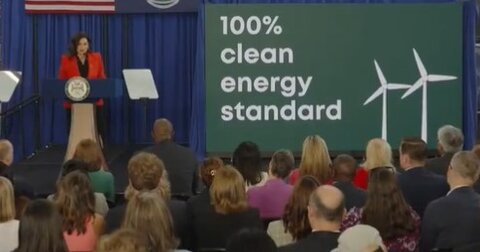Whitmer signs clean energy package; it will cost you
By 2040, Michigan utilities will be forced to run mostly on solar panels and wind turbines
Gov. Gretchen Whitmer’s clean energy plan is now the law of the land in Michigan.
Michigan utilities will be forced to run on so-called clean energy, mostly wind and solar, by 2040. And appointees of the governor at the Michigan Public Service Commission — not elected officials in local communities — will have the final say on large-scale solar and wind projects.
“Estimates show that taking the state of Michigan to net-zero emissions by 2050 would only reduce global temperatures by approximately 1/1,000th of a degree Celsius by the year 2100,” said Jason Hayes, the Mackinac Center’s director of energy and environmental policy. “Meanwhile, people can expect to pay an additional $2,746 in energy costs each year just to experience more blackouts.”
When Democrats took control of both the Michigan House and Senate in January, they embraced Whitmer’s MI Healthy Climate Plan, which was introduced last year. With full control of the Legislature, they set out to codify the plan into law.
Read about the full clean energy package here. Read what Hayes says about the clean energy package here.
But they ran into a problem: Local communities, which sometimes reject big solar and wind developments. Without allowing Lansing to bypass local leaders, sponsors and supporters of the plan said, they’d never be able to reach the governor’s clean energy goals.
Dan Scripps, chair of the Michigan Public Service Commission, painted Lansing control as a matter of necessity. Scripps said that one-half of one percent of Michigan’s land would be needed to meet Whitmer’s clean energy goals.
About 17,000 acres in Michigan are now covered by wind and solar infrastructure, Scripps said.
Scripps estimated that 209,000 acres of Michigan’s land would be needed for solar and wind projects.
Michigan’s energy transition will cost some people their jobs, lawmakers admit. To that end, Senate Bill 519, one of the bills Whitmer signed, will create a bureaucracy to address those job losses. The Michigan labor department will now have a Community and Worker Economic Transition Office to manage the fallout.
The transition will displace workers in three fields of work, the bill expects: Auto, construction, and energy.
Michigan Capitol Confidential is the news source produced by the Mackinac Center for Public Policy. Michigan Capitol Confidential reports with a free-market news perspective.

